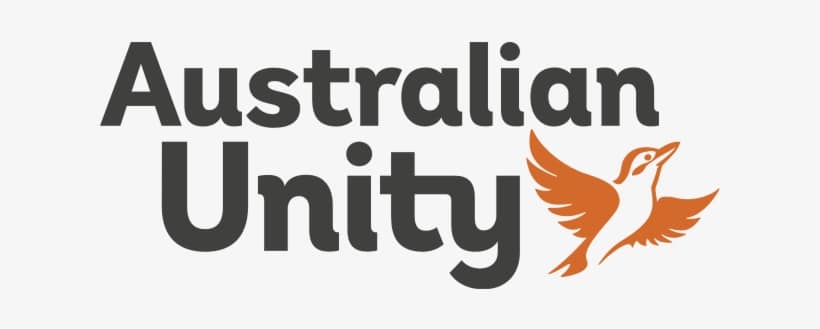Brands you can compare with us



We’ve partnered with Compare Club to bring you a range of health insurance policies to compare side by side.
You’d do anything for your family, right? That means finding the right health cover at the right price for your partner and kids is one of the most important decisions you can make. You can compare a range of competitive offers for family health insurance from a panel of Australia’s leading providers with Savvy. Simply fill out a quick quote with us to compare offers in one place based on their cost, inclusions, added benefits and more. Get started with us today.
How does family health insurance work?
Family health insurance is designed to provide effective cover for you, your partner and your children. This cover can apply to services or treatments not covered by Medicare as well as hospital care. Under a family health insurance policy, you can take out hospital cover, extras cover or a combination of the two for the most comprehensive health and financial protection.
Family health insurance cover can apply to families of all sizes, with dependent children covered up to the age of 31 with some insurers.
What are the different types of family health insurance and what do they cover?
Family health insurance policy options include the following:
Family hospital cover
Hospital cover for families can help you access cover for medical services or treatments as a private patient in either a public or private hospital. Family hospital cover can also provide cover for part or all of your in-hospital treatment by your preferred doctor, plus in-hospital accommodation and theatre’ fees should you require surgery.
Hospital cover policies are divided into four tiers: basic, bronze, silver and gold. Each tier has its own benefits, and the cost of your insurance premiums will be largely dictated by the level of cover you choose. The more basic the policy, the cheaper the cost but the fewer inclusions you’re likely to have. Some of the key areas which may covered, depending on the type of policy you buy, include:
- Ambulance cover
- Private patient accommodation in private or public hospitals.
- Intensive care costs
- Operating theatre fees
- In-patient MRIs, x-rays, CT scans and pathology
- In-patient cancer and stroke treatment
- In-patient pharmaceuticals
- Cardiothoracic surgery for heart, lungs or chest
- In-patient rehab services
- Organ transplant
- Surgically implanted prostheses
- Eye surgery
- In-patient psychiatric treatment
- Palliative care
- Other surgeries and in-patient procedures including hip replacements, knee replacements, back surgery, dental surgery, hernia repair, colonoscopies and much more.
Each of these will be covered under a top tier gold hospital policy, but you may not have access to all of them under a less comprehensive plan.
Family extras cover
Family extras insurance can offer cover for the cost of treatments and health services outside a hospital setting, such as dentists and physiotherapists. The inclusions under a family extras policy will differ between insurers, but some of the common extras which are often considered for families include:
- Dental and/or orthodontics
- Optical
- Pharmacy
- Physiotherapy
- Podiatry
- Chiropractic
- Diet/nutrition services
- Speech therapy
- Preventative testing
Combined hospital and extras cover
A combined family hospital and extras cover policy can provide the benefits of both sorts of cover. It may allow you to take advantage of a combination of both sets of inclusions to boost the level of protection available to your family. It’s possible to mix the level of cover you have for both types of coverage, such as choosing a bronze hospital cover policy with a more comprehensive extras cover policy.
What isn’t covered?
The exclusions of your family health insurance will depend on the type and tier of cover you choose. Under a family health insurance policy with only hospital cover, the common exclusions can are:
- Procedures which aren’t considered medically necessary (such as cosmetic surgeries)
- Most CT scans, MRIs, x-rays and blood tests performed on outpatients
- Visits to a GP or public hospital emergency department (which are either partially or fully covered by Medicare)
To gain a thorough understanding of a policy’s exclusions, carefully read your product information documents prior to help determine the cover you can access for yourself and your family.
Waiting periods for each type of hospital cover may vary but are usually:
- 12 months for any pre-existing conditions.
- 12 months for pregnancy or other birth services.
- 2 months for rehab, psychiatric or palliative care (regardless of whether it’s a pre-existing condition).
- 2 months under most other circumstances.
Types of health insurance
Why compare health insurance policies through Savvy?
100% free service
There's no need for you to pay a cent to compare a variety of competitive policies side-by-side in one place.
Compare policies online
You can consider the inclusions, premiums, benefits and other key factors easily online, whether you're at home or on the go.
Trusted partners
We're partnered with Compare Club to help our customers lock in the best deal tailored to their needs.
What affects the cost of my family health insurance premiums?
-
The level of cover you choose
The primary factor in determining the cost of your family health insurance is the level of cover you choose. If you opt for hospital cover, there may be a significant price difference between basic hospital cover and gold hospital cover. The addition of extras cover to your chosen hospital policy will also increase the cost.
-
Your choice of health insurer
Policy prices may differ quite substantially between insurers. For this reason, it's important to compare policies carefully before deciding which one offers the best value for your family's needs.
-
Your state/city of residence
Certain states and cities may have higher costs for certain healthcare treatments or services, so the cost of your family health insurance will reflect these differences. As such, it's important to do your homework to see how where you live may impact your health insurance premium.
-
Your age/life stage
Your age at the point you purchase your policy may also affect your premiums if you’re entitled to a discount. Some insurers may offer those between the ages of 18 and 29 a discount on their hospital cover premiums worth up to 10% (2% each year the policyholder is aged under 30). As such, you may pay less for your policy if you and your partner are eligible for a discount with an insurer.
-
The cost of your excess and co-payments
In addition, your family health insurance premiums will be impacted by the excess and co-payments you choose. You can choose to pay a higher price for a policy with lower excess and co-payment amounts, or you may opt for a low-cost premium and commit to a greater spend in each area.
Pros and cons of family health insurance
Pros
-
Claim additional benefits
Health services like dental treatment, physiotherapy and the cost of glasses which are not covered by Medicare can be covered by your family’s health insurance extras cover.
-
No Medicare Levy surcharge
By taking out appropriate hospital cover, you can avoid paying the Medicare Levy Surcharge (MLS) of between 1% and 1.5% for the period you hold hospital cover. The MLS is means-tested.
-
Avoid public hospital wait lists
Taking out family health insurance can reduce the waiting time for elective surgeries by accessing private hospital care.
-
Choice of doctor or surgeon
Appropriate family health insurance can allow you to choose your preferred doctor or surgeon subject to the terms and conditions of your particular policy.
-
Peace of mind
Having family health insurance can provide additional peace of mind, knowing that should an event occur which you're covered for, you may be able to make a claim for part or all of the cost.
Cons
-
Exclusions
Even with a private health insurance policy, you may not be covered for 100% of the cost of your treatment due to certain limits or gap fees, as well as exclusions for certain areas of coverage.
-
Not all dependent children can be covered
Even if your child lives at home and is still financially dependent, they may not be covered under your family health insurance policy once they reach 21 unless they’re a full-time student. However, some health funds will let you keep adult children on your policy up to the age of 31.
-
Waiting periods
When deciding on a family health insurance policy, it’s vital you compare your options broadly so you can look for suitable cover at a reasonable price. However, although the cost of your family health insurance is important, you mustn’t let that come at the cost of certain other features which are important to your family’s health.
Top tips for comparing family health insurance
-
Compare the cost of family health insurance premiums
When deciding on a family health insurance policy, it’s vital you compare your options broadly to get the best policy price for your needs. However, although the cost of your family health insurance is important, you mustn’t let that come at the cost of certain other features which are important to your family’s health. -
Consider your family’s age and health situation
Does a family member have a pre-existing health condition or an underlying medical history? If so, you may need to prioritise cover for that condition or illness. -
Compare the total coverage on offer
In the decision-making process, make sure you look at the total coverage relevant to each policy. You should always have a clear understanding of what’s included and what isn’t so you can assess how suitable the policy is for you and your loved ones. -
Understand your policy's limits
It’s valuable to know the amount of money you’ll be covered for with each inclusion in your policy. While some policies may provide cover for every inclusion, there may be annual limits which could still leave you with out-of-pocket expenses.






